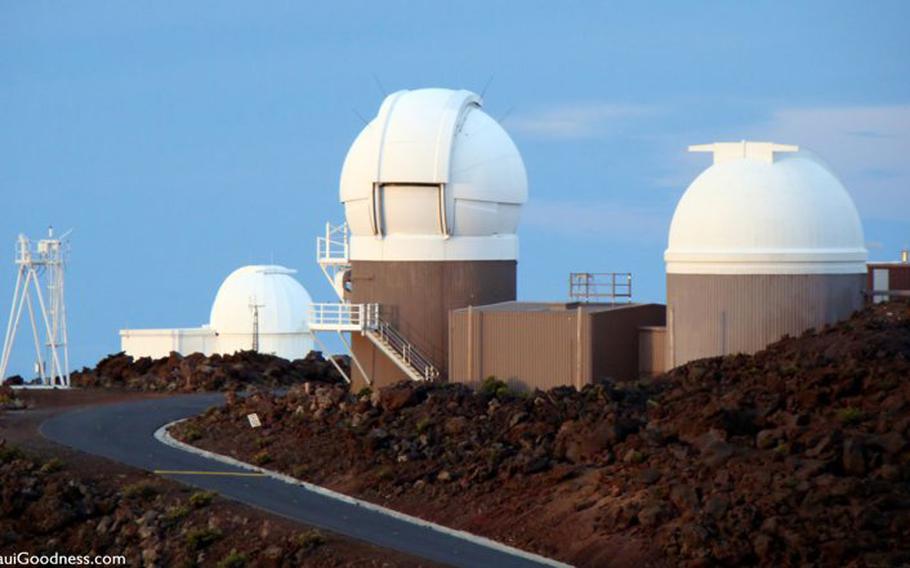
About 700 gallons of diesel fuel spilled during the night of Jan. 29, 2023, at the Maui Space Surveillance Complex in Hawaii. (U.S. Space Force )
FORT SHAFTER, Hawaii — About 700 gallons of diesel fuel spilled Sunday at a mountaintop observatory on Maui operated by U.S. Space Forces Indo-Pacific, the Air Force said Tuesday.
The spill occurred at the Maui Space Surveillance Complex, which tracks satellites and space debris using several telescopes atop Haleakala, a dormant volcano.
“Due to a mechanical issue, a diesel fuel pump for an on-site backup generator failed to shut off” Sunday night, the Air Force said in a news release.
At about 8 a.m. Monday, maintenance personnel discovered the failure and shut off the transfer pump, the Air Force said.
About 700 gallons of fuel was released, but the service did not indicate where the fuel had settled on the 10,000-foot summit.
The Air Force said Wednesday that no further information was available.
Fuel-spill experts from the Air Force Installation and Mission Support Center were on their way to Maui as of Wednesday morning to assess the site and begin remediation efforts.
The Hawaii Department of Health and the U.S. Environmental Protection Agency were notified of the spill, the Air Force said.
“We understand the importance of being good stewards of the environment and will work with necessary state and federal officials as we begin clean-up efforts,” Brig. Gen. Anthony Mastalir, commander of U.S. Space Forces Indo-Pacific, said in the news release.
The spill comes at a fraught time for the military in Hawaii.
A fuel leak on Oahu from the Navy’s World War II-era Red Hill underground fuel storage facility in late 2021 contaminated drinking water for thousands of residents living in military communities on and near Joint Base Pearl Harbor-Hickam.
In the fall, while Navy officials were preparing to drain the Red Hill tanks for the site’s permanent closure, a toxic firefighting foam compound was accidently released at the facility.
Critics, such as Sierra Club Hawaii, argued the military has too large a footprint in the state, with the risks outweighing the benefits.
“We, along with many Kanaka Maoli groups, have had concerns for many years about impacts from the military and civilian operations at Science City at the top of Haleakala,” Lucienne de Naie, chair of the Sierra Club Maui Group Executive Committee, said in an emailed statement, using the Hawaiian language term for indigenous Hawaiians.
“There have been reports of various impacts that were not fully addressed, and we continue to have concerns about the appropriateness of industrial scale operations in a very sensitive ecosystem that is regarded by Kanaka Maoli as a sacred place.”